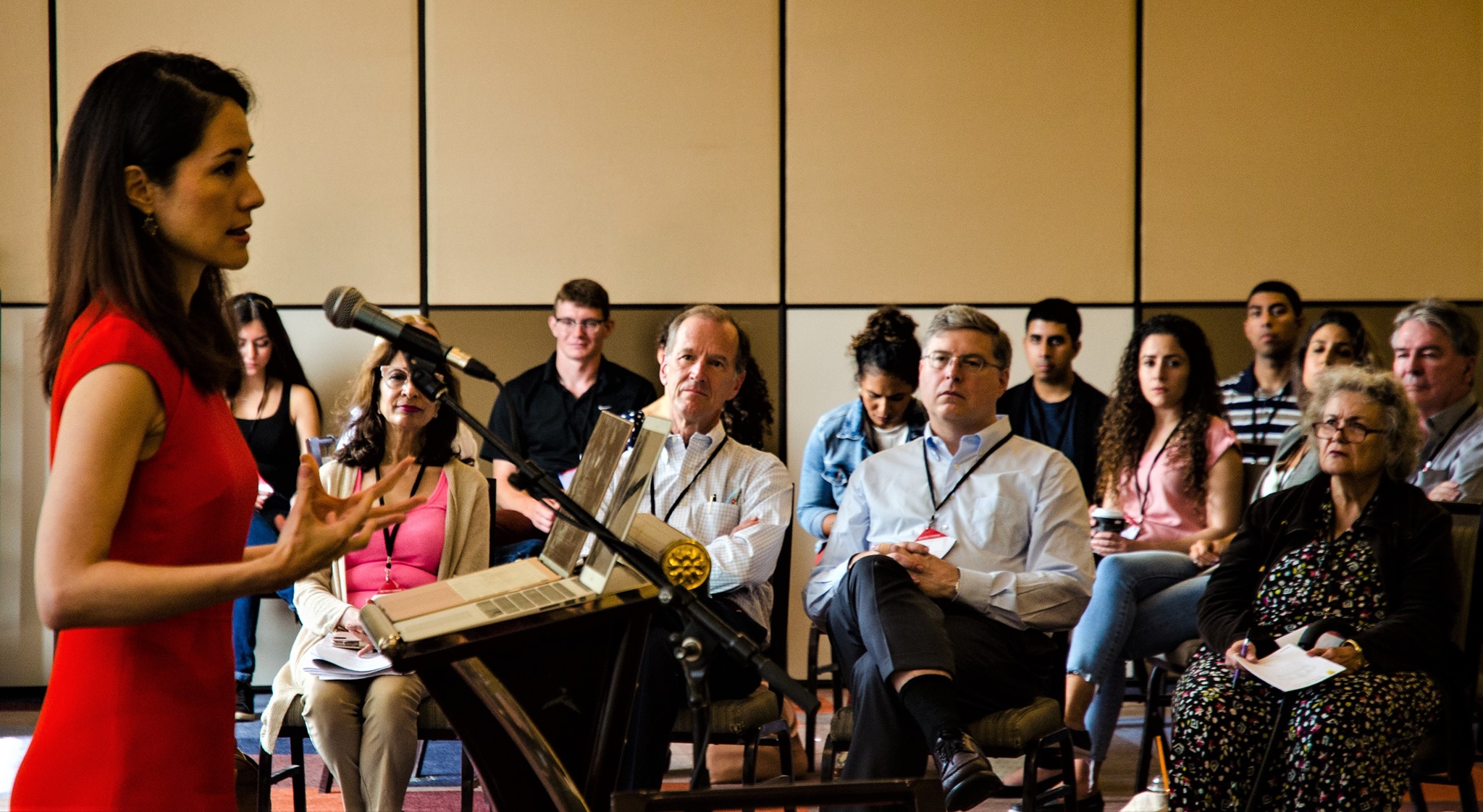In an age dominated by dissonance and division, the principles espoused by the Bahá’í Faith present a beacon of hope and a template for societal cohesion. The recent ABS conference adeptly illuminated various social themes, providing profound insights that resonate with the Bahá’í teachings. As the discussions unfolded, attendees were invited to delve into an examination of prevailing challenges while discerning the overarching principles that the Bahá’í Faith offers to navigate these complexities.
The conference catalyzed an exploration of the critical role of unity in diversity—a fundamental tenet within the Bahá’í community. The concept extends beyond mere tolerance; it encourages an active embracement of differences as strengths rather than obstacles. By cultivating a culture that recognizes the inherent value of diverse perspectives, societies can foster environments conducive to innovation and mutual respect. The deep-seated Bahá’í belief that humanity must advance together aligns with this notion, suggesting that strife among factions weakens the very fabric of society.
Moreover, the gathering underscored the significance of social justice as a cornerstone of community engagement. This aligns seamlessly with writings of Bahá’u’lláh, the founder of the Bahá’í Faith, who emphasized the moral imperative of advocating for the disenfranchised. The conference presented case studies that illustrated the successful implementation of inclusive policies aimed at marginalized groups. It prompted participants to reflect deeply on their roles within their communities and the extent to which they actively contribute to the societal upliftment of all, particularly those at the periphery.
Another vital theme that emerged was education as a transformative instrument for social change. Embracing the Bahá’í principle of universal education, the conference engaged thought leaders who shared innovative educational paradigms aimed at equipping future generations with the tools to address pressing global issues. The dialogue elucidated how education serves not merely as a vehicle for knowledge but as a means of fostering moral and ethical development. This comprehensive approach challenges traditional paradigms and invites a holistic understanding of human development, aligning with the Bahá’í perspective that knowledge is both a means of individual empowerment and collective advancement.
In this vein, the implications of gender equality were also fervently discussed, reflecting another cornerstone of Bahá’í teachings. The conference articulated that true advancement is inextricably linked to the elevation of women and the dismantling of patriarchal structures. By emphasizing the transformative power of women’s contributions in all spheres of life, the conference echoed the Bahá’í belief that gender parity is crucial for achieving global peace and harmony. Insights shared during the sessions illustrated that when women are empowered, entire communities thrive. The Bahá’í Faith’s advocacy for women’s rights is a compelling reminder of the potential for societal transformation when inclusivity is embraced at all levels.
The conference also addressed the urgency of addressing poverty and economic disparities. The discourse posited that the Bahá’í approach to economic development is not solely focused on alleviating poverty but is also concerned with establishing a framework for sustainable and equitable economic practices. This perspective encourages collaboration between governmental entities, non-profit organizations, and the private sector to create systems that prioritize the welfare of all, rather than a privileged few. By advancing a holistic economic model that centers on moral principles, the Bahá’í teachings resonate profoundly with the conference’s commitment to laying the groundwork for a more just and equitable world.
Throughout the conference, attendees were reminded of the importance of consultation—a practice encouraged in the Bahá’í Faith. The process of collective decision-making was highlighted as an essential element for ensuring the inclusivity of opinions and perspectives. This principle not only cultivates a sense of ownership among stakeholders but also enhances the quality of outcomes derived from communal engagements. By integrating consultation into social initiatives, communities stand to benefit from a wealth of insights and experiences, thus promoting a more collaborative future.
Furthermore, the dialogue surrounding environmental stewardship resonated with the Bahá’í imperative of recognizing the interrelatedness of all existence. The discussions provided a rich tapestry of perspectives on sustainable living, ecological conservation, and the moral responsibility to protect the planet for future generations. The Bahá’í teachings emphasize that humanity’s well-being is inseparable from the health of the environment. This fundamental connection was reinforced through various presentations that motivated participants to consider innovative ways to harmonize economic growth with ecological sustainability.
As the conference drew to a close, it became abundantly clear that the fervent exploration of social themes was not merely an academic exercise; it was a call to action. The collective insights shared underscored that embodying the Bahá’í teachings in daily life extends beyond rhetorical entreaties. It demands that individuals actively engage in fostering unity, promoting justice, and advocating for the upliftment of all marginalized groups in pursuit of a more harmonious society. The attendees left the conference rejuvenated, equipped with a renewed vision for social progress, inspired as they sought pathways to embody the teachings that advocate for a united and progressive world.
In conclusion, the ABS conference served as a pivotal platform for reflecting on the myriad of social themes with which humanity grapples today. By holding a mirror to contemporary challenges and illuminatively discussing the solutions embedded within Bahá’í teachings, attendees returned to their communities not just as passive observers but as active change-makers. This synthesis of insight and action encapsulates the essence of the Bahá’í commitment to the oneness of humanity, thus revitalizing a shared hope for a united and prosperous future.
